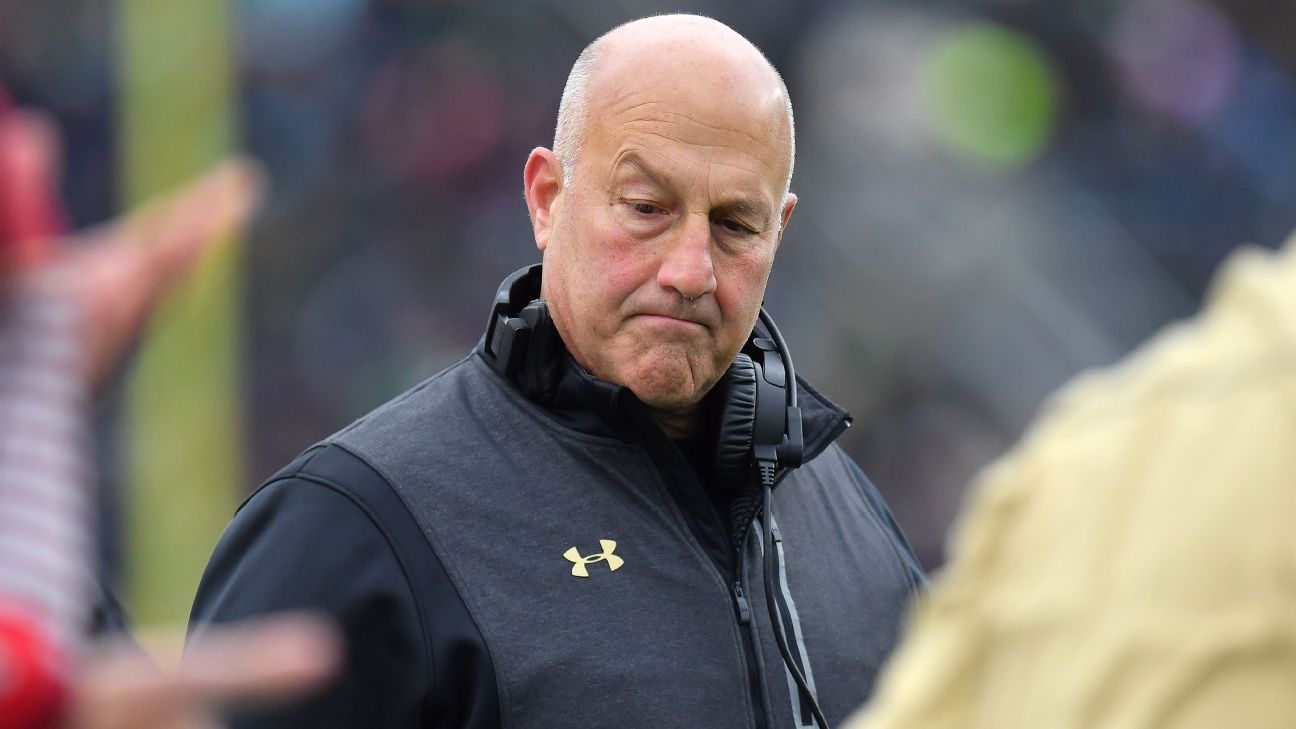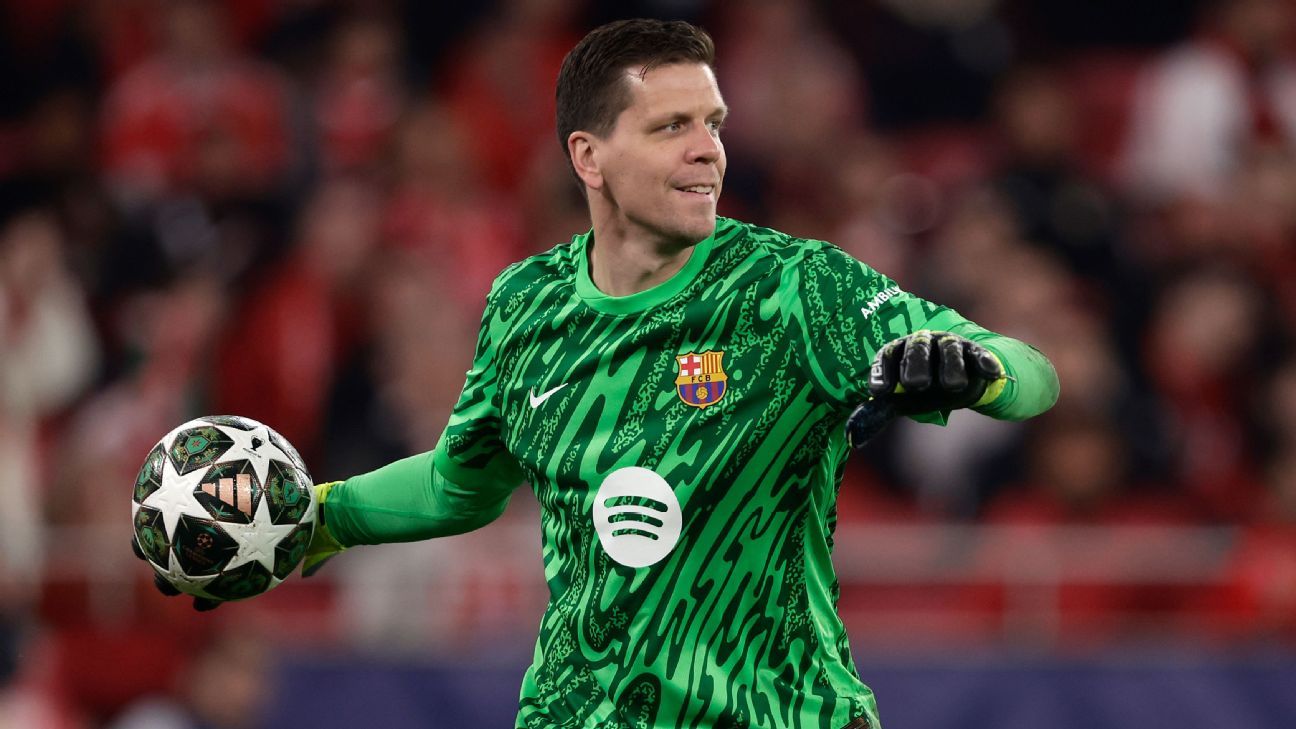
Joyce McConnell, president of Colorado State University, said Tuesday she is launching an "immediate and objective" investigation into the athletic department following allegations that student-athletes have been intimidated and threatened as leaders sought to disregard COVID-19 protocols.
Coaches, players and sports medicine staff at Colorado State University told ESPN that athletic department leaders are discouraging athletes from being tested for COVID-19, are failing to provide accurate information to local and state health officials and are ignoring guidelines to quarantine athletes who might have been exposed.
Football players have also been told their playing time could be affected by a positive test and an extensive absence due to COVID-19, according to multiple sources.
McConnell, who told ESPN she was "shocked" by the allegations, said the school would protect anyone against retaliation. She said Colorado State will not play football in 2020 unless players feel safe.
"I assure you, if anyone has [violated our standards], we will investigate and we will find out," McConnell said.
Rams coach Steve Addazio issued a statement later Tuesday, saying that the program has developed "a comprehensive COVID-19 prevention plan in collaboration with the University's Pandemic Preparedness Team which includes specific, strictly enforced processes and procedures to build and maintain a culture of safety, compliance and responsibility to all members of the football program and the community."
"The health and welfare of our student-athletes on the Colorado State football team is our top priority, and I fully support President McConnell's investigation into concerns about whether these protocols were properly followed by everyone involved with our program," Addazio said in his statement. "We want every student-athlete to have confidence that we are taking every possible measure to ensure their safety, and we will continue working with the training staff, the athletic department and the University to evaluate and implement any additional steps necessary to live up to our high standards."
In a statement, athletic director Joe Parker said he supports the investigation.
"It was troubling to read today that any student-athlete is concerned about our department's commitment to their health and safety," Parker said in the statement. "As we have reiterated daily with our staff and student-athletes, their health is our top priority. We believe strongly in our policies and procedures and have instituted those at the direction and guidance [of] our University's Pandemic Preparedness Team, and local, state, and federal officials. The report that some football student-athletes were instructed to withhold symptoms would run counter to repeated communications we have had with our staff and student-athletes.
"I fully embrace President McConnell's investigation into this matter, and if we learn anyone on our staff has not been fully supportive of our commitment to health and safety, this is unacceptable and will be dealt with swiftly."
After announcing no COVID-19 cases on July 20, the program had 11 in football and five more outside the sport by Sunday. Multiple CSU football players have told ESPN that a position coach told players to hide possible symptoms of COVID-19 because "we can't afford it" as a team.
As the numbers continued to grow, some players felt compelled to minimize their symptoms, according to multiple people within the program. One source said a player who had a severe cough and eventually tested positive continued to work out. Another source said a player with symptoms, who subsequently tested positive, was "scared" to mention them to the coaching and medical staff.
"This is their only chance," said one source about the sentiment within the team. "They can't risk that for feeling a little tickle in their throat."
After The Coloradoan published a story earlier Tuesday about the football team's alleged mishandling of COVID-19 protocols, some CSU players disputed the allegations on Twitter.
This is completely inaccurate. The coaches have done a tremendous job at keeping the health of the players and staff a top priority. The plan they have is to keep the players safety in the center. Very inaccurate. https://t.co/iOKUkQGpLe
— Trey McBride (@mcbtrey) August 4, 2020
False ?♂️, our coaches main priority is our health, they've been more than amazing keeping us healthy and following the covid-19 guidelines https://t.co/HjCa4FqNuu
— owen snively (@owen_snively) August 4, 2020
Last week, Addazio addressed the team in a virtual meeting the day after the program had temporarily paused activities following a COVID-19 outbreak, according to sources who participated.
At the time, eight players had tested positive for the virus, prompting a 14-day quarantine, as recommended by the Centers for Disease Control and Prevention, for the entire team. According to multiple sources, Addazio told players that he'd planned to resume activities as early as this week, depending on the results of Monday's teamwide testing.
"I can confirm he said that 'although the CDC recommends 14 days, we're going to try to come back early,'" a source who attended the meeting told ESPN.
Another person who attended the meeting told ESPN, "He was making it sound like, depending on the test results, he wants to get back before 14 days. It's like ... is that even possible?"
Team spokesman Kyle Neaves said the quarantine was voluntary.
"I can tell you that there was never any official 14-day quarantine," Neaves said. "When we voluntarily paused -- where most others are being shut down by their local health departments -- that was instituted in order to give us the opportunity to test the entire team again, which we did on Monday and ran 150 tests."
Neaves also noted that the school said in its original news release that it anticipated returning to complete team activities "within the next two weeks."
Multiple sources among players, sports medicine staff and coaches -- who spoke to ESPN on the condition of anonymity because they said they feared retribution -- said disregarding COVID-19 protocols was part of an unsettling and toxic pattern at CSU, and some examples extended beyond the football program. They also shared emails and text messages to back up their claims.
After a volleyball player tested positive, a concerned staffer reached out to Terry DeZeeuw, the senior associate athletic director for health and performance, via email. That person, a member of the sports medicine staff, said he'd spoken to three of the teammates who'd attended a breakfast at an indoor location without masks while sitting next to the player who tested positive, but school officials did not instruct them to quarantine.
"Due to recent events with the volleyball team, I would like to request a written explanation of the reasoning behind certain student athletes quarantining or not quarantining," he said in the email. "If you can not help me obtain this, please let me know how I can reach out to [state public health officials]."
Another member of the sports medicine staff said the athletic department's protocols for quarantining athletes who have tested positive have frequently shifted and changed without explanation, leaving athletes vulnerable.
The staffer also said Addazio's football team has not faced the same standards as other athletes on campus. When football players attended a July party with a female athlete who later tested positive for COVID-19, the other female athletes who attended the party were asked to quarantine, but the male athletes on the football team were not.
"I feel as if they are not keeping people safe," the sports medicine staff member said.
When a handful of players tested positive for COVID-19, some players thought the school should have shut down the program. By last week, 27 players had missed practice with a variety of symptoms.
"We can't do anything," one player said. "We don't have a union."
Their frustration is rooted in what they say was a failure to do more to prevent the spread as the numbers continued to climb within the team.
"I'm just trying to protect myself and others," one player told ESPN. "I feel like when the first guy got it, we should have maybe taken a step back. Once three guys had it, he should've canceled."
He said the team has switched from an emphasis on health to largely focusing on football, prompting some players who have had concerns to keep quiet.
"He's not a welcoming guy," said a source who works closely with Addazio. "If a player voiced a concern, he wouldn't be listened to, he wouldn't be considered. The poor players are in a powerless position. Nobody is putting the interest of the players first. This is completely reckless."
One staffer within the athletic department said he believes the actions by leaders at Colorado State go beyond negligence. There are concerns among some staffers that there is, at a minimum, miscommunication between CSU's athletic department and local and state public health officials, and perhaps misinformation. Multiple sources interviewed by ESPN said they're concerned that CSU's mismanagement of COVID-19 protocols could lead to a tragic situation.
"I feel that we are on a slippery slope and have put ourselves in a situation that could potentially unfold in a manner similar to what happened at the University of Maryland," said one staffer, referring to 2018 death of football player Jordan McNair after he collapsed from heatstroke.
ESPN has reached out to state public health officials, who have not yet responded to a request for comment.
McConnell, the school president, told ESPN: "CSU has absolutely no tolerance for putting the health and safety of the athletes at risk."















 Phone: (800) 737. 6040
Phone: (800) 737. 6040 Fax: (800) 825 5558
Fax: (800) 825 5558 Website:
Website:  Email:
Email: 






